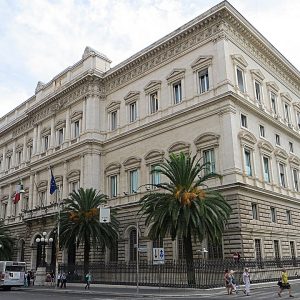Reports of suspicious transactions related to terrorist financing rose in 2024, according to the Financial Intelligence Unit (UIF) at the Bank of Italy.
At the recent presentation of the UIF’s annual report, director Enzo Serata highlighted the global threat landscape, noting how the Israeli-Palestinian conflict has influenced tensions across the Middle East. This regional instability appears to have contributed to an increase in suspicious activity linked to jihadist propaganda and terrorism financing.
While the total number of suspicious transaction reports (STRs) received by the UIF fell by 3.3% compared to 2023 to 145,401, the number of reports specifically concerning terrorist financing rose by 14.5%, reaching 340 cases. These remain a small fraction of the total but represent a clear upward trend.
The UIF also pointed to a significant rise in suspicious activities within the non-financial sector, especially involving professionals and operators in crypto-assets. The persistent growth of cryptocurrencies has added complexity to money laundering schemes, with cyber fraud becoming more sophisticated.
Minister of Economy Giancarlo Giorgetti acknowledged these challenges. “We are aware that the ways in which cryptocurrencies are used for money laundering purposes are constantly evolving and becoming increasingly complex and sophisticated.”
Beyond crypto, the UIF warned that the widespread use of cash and the growth of the underground economy in Italy reduce financial traceability. These factors continue to facilitate money laundering and other economic crimes.
Reports concerning possible circumvention of international sanctions against Russian individuals remain steady, with 1,243 suspicious transactions flagged in 2024. This was in line with the previous year’s figures. New tactics have emerged involving the triangulation of financial flows, often through crypto-assets and stablecoins. These methods may enable large-value transfers outside traditional banking systems, potentially aiding sanction evasion.





